New York – In his mind, Michael Regan should have been down there. He should have had the guts.
A longtime New York City employee who became first deputy fire commissioner after the terrorist attacks of Sept. 11, 2001, Regan coordinated scores of funerals and memorial services and helped hundreds of shattered families. Still, he could not shake the guilt. He should have been there, down at the World Trade Center.
After a couple of months, Regan finally shared his remorse with a stunned Fire Department colleague, who told him that he had been there. Regan had helped transport the bodies of the first deputy fire commissioner, Bill Feehan, and the chief of department, Peter Ganci, to the morgue on First Avenue.
Don’t you remember?
Looking back, Regan said his mental block must have been a way to cope with the instant loss of thousands, including many close friends. “It was a safety mechanism,” he said. “I saw horrible things that day, and I didn’t want to think about those things.”
Twenty years later, the command to “never forget” retains its power, jolting us into the past whenever we see it on a hat or flag or the back of a passing car on the Belt Parkway. For all its slogan-like simplicity, these twinned words seem freighted with the complexities of guilt, obligation and even presumption — as if we could ever forget.
But now that an entire generation has been born since the day, versions of the question posed to Regan might be asked of all of us who lived it in some way. Two planes hijacked by al-Qaida piercing the north and south towers of the World Trade Center. A third slamming into the Pentagon in Arlington, Virginia. A fourth crashing in an open field outside Shanksville, Pennsylvania. All in less than 90 minutes.
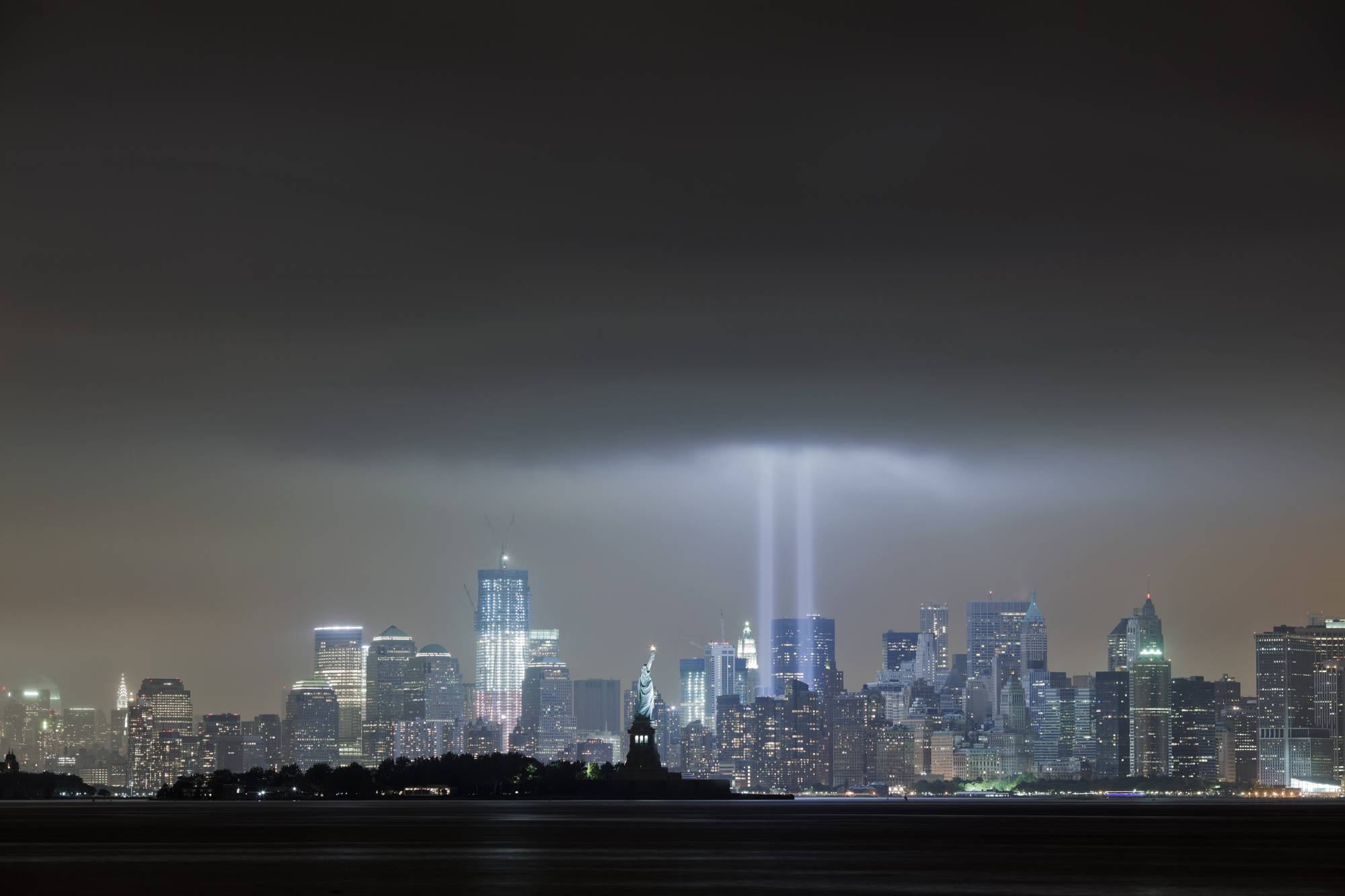
What, exactly, do you remember? What stories do you tell when a casual conversation morphs into a therapy session? What stories do you keep to yourself? And what instantly transports you back to that deceptively sunny Tuesday morning?
For Nikki Stern, a writer, it might be the waft of cigar smoke. Her husband, Jim Potorti, a vice president at Marsh & McLennan who worked on the 96th floor of the north tower, enjoyed the occasional cigar. Or it might be the sight of a bicycle. Just a bicycle. Jim used to cycle. …
“I compartmentalize,” Stern said. “But there’s a permanent leak in the compartment.”
For James Luongo, a former deputy chief of the New York Police Department, it’s driving past the now-closed Fresh Kills landfill on Staten Island. He spent nearly a year on that mound, supervising a pop-up base camp where 1.8 million tons of World Trade Center debris were sifted for human remains and personal effects.
The problem is: Luongo lives on Staten Island.
“You’ve got to put it where it needs to be,” he said of the memories. “And not open the door more than you have to.”
Never forget.
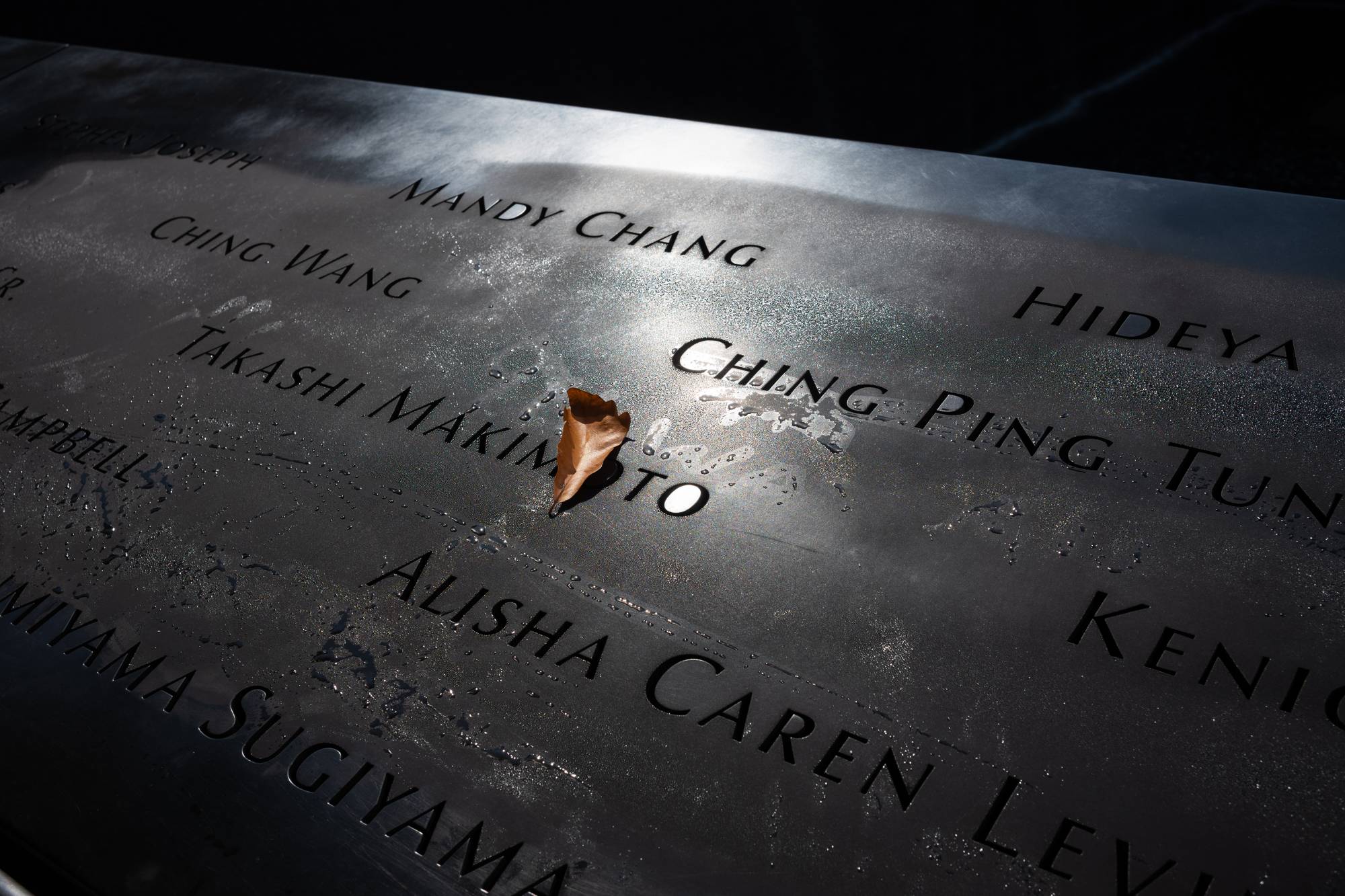


“When I hear ‘never forget’ for 9/11, my next question is: ‘Never forget what?’” said Charles B. Stone, an associate professor of psychology at John Jay College of Criminal Justice.
Never forget the international dynamics that set the stage? The homeland insecurities that followed, including the harassment of U.S. citizens simply because they were Muslim? The months of seemingly nonstop funerals? The two decades of war and bloodshed?
“Probably the closest answer is: Never forget that it occurred,” Stone said. “But it’s the little details that will be forgotten.”
I remember.
The stillness as another body was pulled from the rubble and carted away to salutes and construction helmets held over hearts. The hum of the refrigerated trucks outside the morgue. The acrid smell of loss drifting uptown through the newsroom’s open windows. The landfill. The funerals.
The dust.
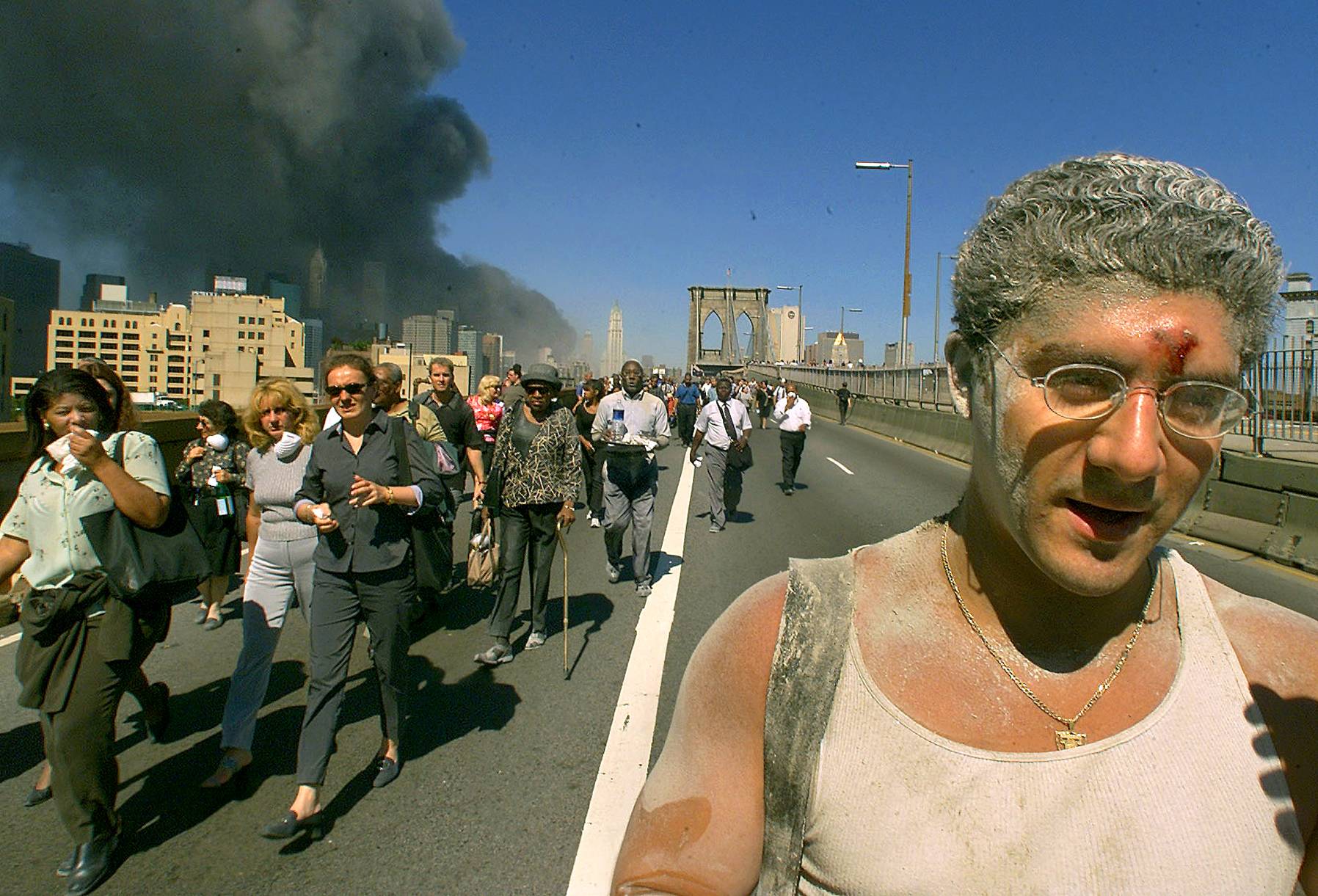


Of course, the call to “never forget” can also be interpreted as another honorable attempt to preserve some faint sense of the day’s many emotions. Honorable, but perhaps futile against the ceaseless rub of the passing years, the vagaries of memory.
In the first days after the Sept. 11 attacks, a team of scholars around the country set out to capture the moment’s “flashbulb” memories: the vivid, enduring mental snapshots formed at the instant of historical import, such as the bombing of Pearl Harbor or the assassination of John F. Kennedy. They asked more than 3,000 people a few questions, including: Where were you when you learned about the terrorist attacks?
In New York, graduate students working on the study set up tables and handed out surveys at Union Square and Washington Square, where thousands had gathered in the days and weeks after the attacks just to be with one another, moments of communal mourning also now slipping from memory.
A year later, the researchers asked the same questions of many of the same people, only to find that 40% of the memories had changed. A man now saying that he was in the office when he learned of the attacks might previously have said that he had been on a train.
These altered recollections were consistent with similar studies done in connection with other historical events, according to Elizabeth A. Phelps, a professor of neuroscience at Harvard University who worked on the 9/11 memory study. What distinguished the memories of Sept. 11, when compared with ordinary autobiographical memories, was the extreme confidence that people had developed in their altered remembrances, which by the first anniversary had begun to concretize.
“You have your story and you’re sticking to it,” Phelps said.
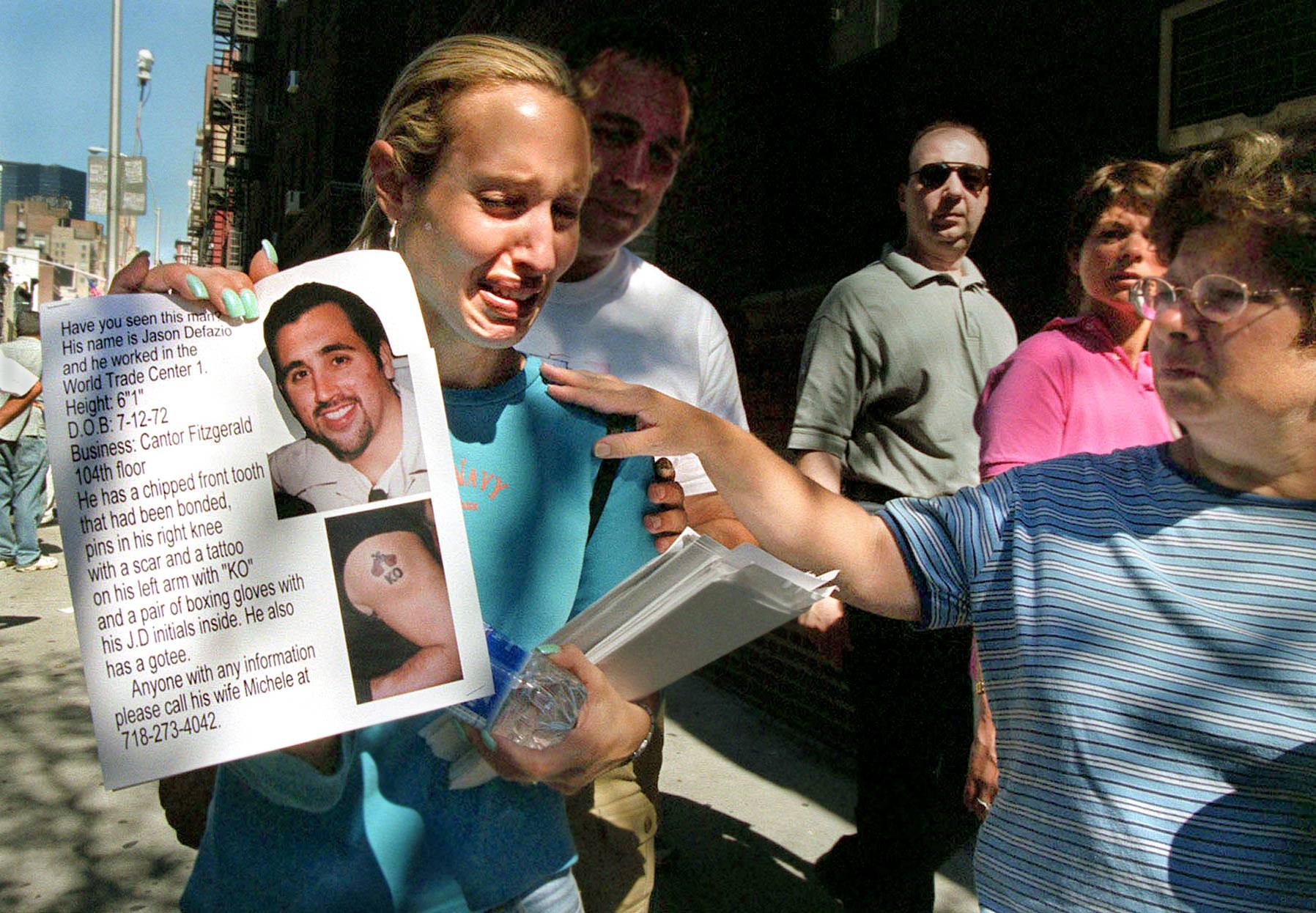


William Hirst, a professor of psychology at the New School for Social Research, who also worked on the study, agreed. “I think what happens is they develop a narrative about their flashbulb memory,” he said. “It becomes their story.”
Hirst wonders whether the changes in memory are somehow linked to a sense of identity. After all, what would it say about you as a New Yorker — as an American — if you didn’t know how you first heard about the Sept. 11 attacks? Aligning your personal narrative with a consequential moment in history may be a way of asserting that you are a part of the affected community, that you belong.
Inevitably, someday there will be no one alive with a personal narrative of Sept. 11. Inevitably, the emotional impact of the day will fade a little bit, and then a little bit more, as time transforms a visceral lived experience into a dry history lesson. This transformation has already begun — ask any high school history teacher.
But for now, for many, Sept. 11 remains a lived experience. We have our stories — our possibly altered memories — to share, or not to share, on the anniversary or any day of the year.
We might tell our stories to hold back the inevitable erasure of time. We might tell them to help us process the moment, or to explain why we grow quiet whenever we hear Bruce Springsteen’s “The Rising.”
Then again, we might keep our stories locked in some leaky compartment, for fear of being perceived as another 9/11 narcissist, the hero of our own narrative. Or maybe we keep them to ourselves out of simple reverence.
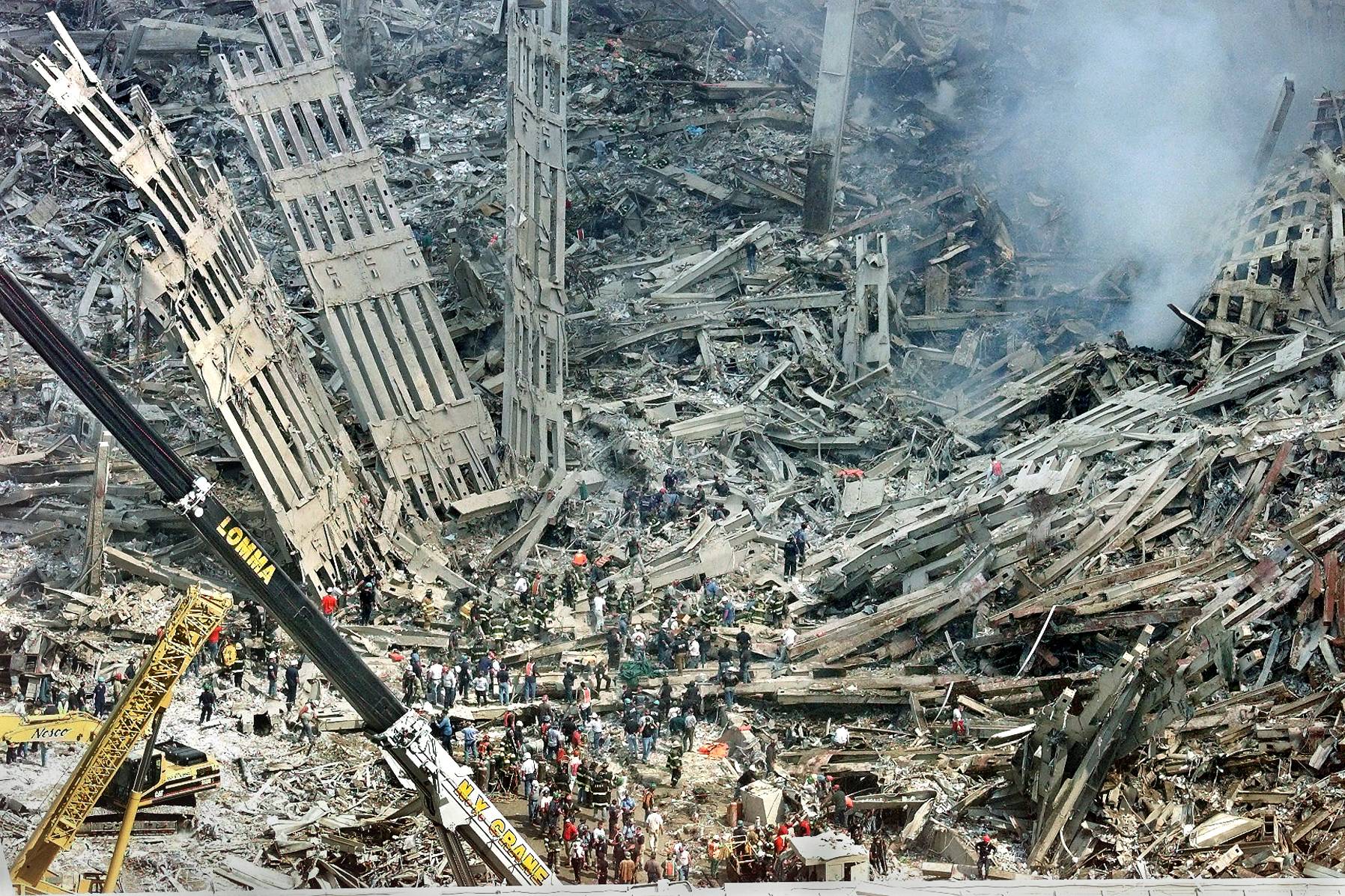


Regan, the man who momentarily forgot, is now 64 and an executive with JPMorgan Chase. He has his memories, his stories. Some are funny, in that dark Irish way of coping. Some are so sobering that silence is the only response.
He avoids the anniversaries, the annual recitation of the names of the dead and all the documentaries and books and essays the day continues to inspire. He will never visit the 9/11 Memorial & Museum, he said. “I don’t need to go back.”
Luongo, now 63, retired in March after 40 years with the NYPD, a career distinguished in part by those many months on the Staten Island landfill. More than 4,200 human remains were recovered, as well as nearly 60,000 personal items, including photographs and identification cards.
What he supervised was a village built on tragedy and aglow at night, with office trailers, a decontamination center, a mess hall and conveyor belts waiting to receive the debris barged from Lower Manhattan. Looming stacks of crushed vehicles, including police cars and fire engines, arranged in neat, horrific rows.
All gone, like Brigadoon. Was it even real? Or is this, too, a trick of memory?
“I remember,” Luongo said. “So you get up in the morning, light a candle, say a prayer — and move on.”
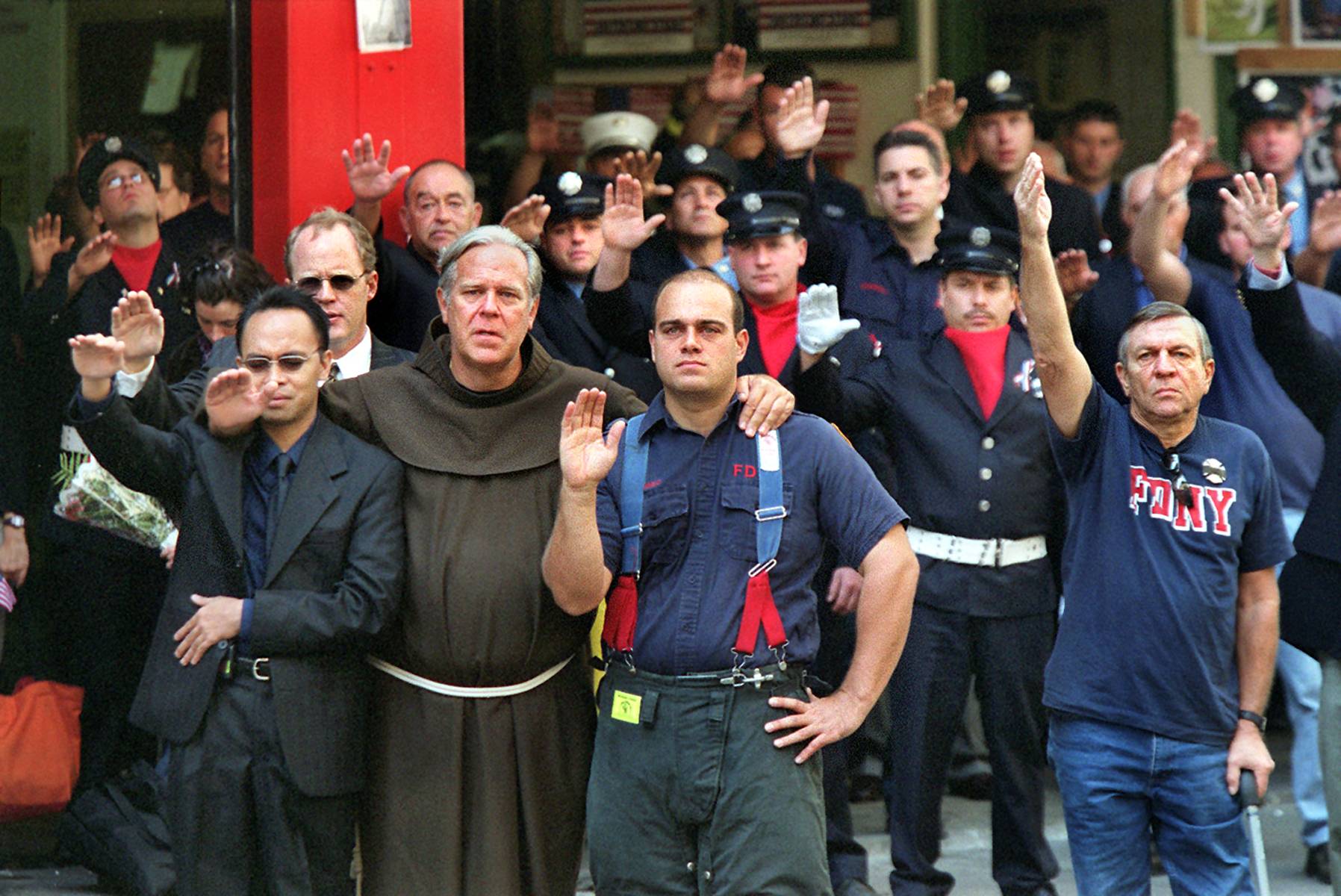


Stern, who went on to write two nonfiction books and four novels, also remembers. How could she not?
Shopping for eggs in a SuperFresh market near her home in Princeton, New Jersey, planning to make chocolate chip cookies for her husband — “I made the best ones in the world” — when someone shouted something like “The World Trade Center has been hit!”
Being notified six months later that a quarter-size piece of Jim had been identified. Writing and writing and writing every night through her grief, more than 150,000 words that no one else will ever see.
Stern has spent the past 20 years trying to get past the “uniquely suffering kind of thing,” as she puts it, and work toward building something constructive. Her involvement with the nonprofit peace-building organization Search for Common Ground is another form of remembering.
“I don’t want anyone to go through this,” Stern said. “But I also don’t want to go through life saying, ‘You can’t understand what I went through.’ What’s the point? Why should they?”
The smell of a cigar. A bicycle. A drive on the Staten Island Expressway. The anniversary.
The dust.
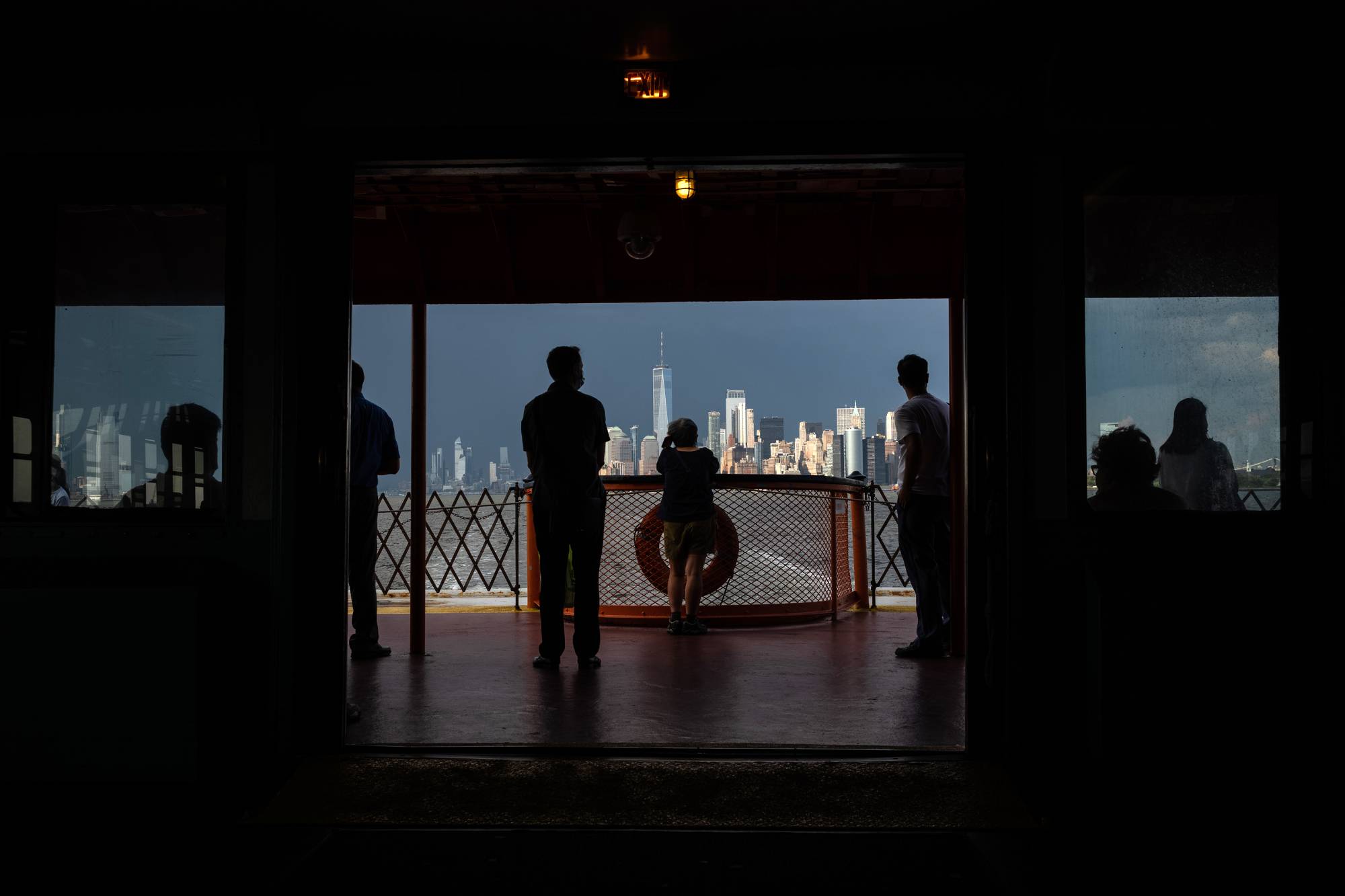


I remember camping out with the National Guard in Battery Park several days after the terrorist attacks. I remember wearing a construction helmet, carrying a clipboard and walking around as if I belonged at the restricted World Trade Center site, then known as “the Pile” and as much a burial ground as a crime scene.
I remember the messages of grief, anger and faint hope scrawled in the dust that had settled on the surrounding buildings. Scrawled with the tips of fingers. I remember being determined to chronicle these messages before the power washers came.
“The Towers Will Rise Again”
“Vernon Cherry Call Home”
“God Be With You Dana — Love, Mom”
I remember not wanting to think too hard about what comprised the dust, and not thinking at all about how harmful the dust might be for rescue and recovery workers to inhale.
I remember the dust being the color of vanilla, although my notes say it was gray. But I am certain of this: The dust was everywhere. The world was covered in it.
© 2021 The New York Times Company
Read more at nytimes.com
In a time of both misinformation and too much information, quality journalism is more crucial than ever.
By subscribing, you can help us get the story right.
SUBSCRIBE NOW


